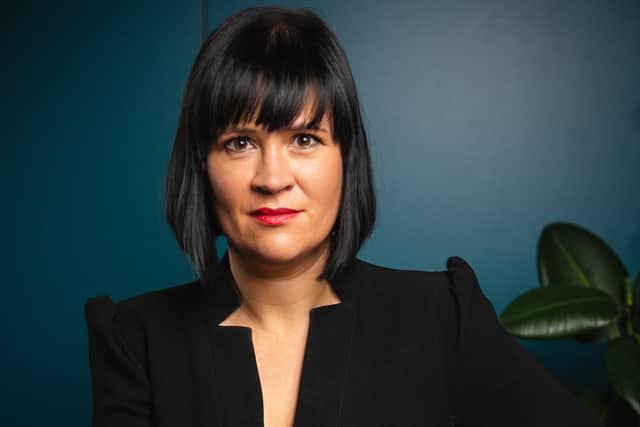How to create offices of future in Leeds and level up Britain – Alex Brunner


This encompassed infrastructure spending to connect regions, evenly spread opportunities, and the regeneration of ‘left behind’ towns. It’s news to nobody that these plans were put on hold as Covid-19 took centre stage.
It’s also a fact that many of the areas most affected by regional inequalities will be hardest hit by the economic fallout of the crisis.
Advertisement
Hide AdAdvertisement
Hide AdOne of the most touted impacts is what the pandemic has done to working culture and the future of the ‘office’, as businesses across the country been catapulted into more modern working practices.


I’ve long been a proponent of flexible working and believe the benefits to business productivity and employee wellbeing speak for themselves. But it’s taken a crisis of this scale to make this apparent to many businesses.
There’s more to this than just work. As more people step back from life as we knew it and take stock of their priorities, many have begun to reconsider their living arrangements.
Businesses have realised they can work well remotely and do not need to be tied to a fixed desk, so have traded London living costs for a move elsewhere as people move to more rural areas, and even towns, villages and cities across the country.
Advertisement
Hide AdAdvertisement
Hide AdThe London Assembly found 46 per cent of the Londoners who wanted to move this year were looking for a property outside of the city.


This mass exodus out of London has inadvertently accelerated the Government’s levelling up agenda, spreading the population across the UK and creating new opportunities for areas outside of the capital.
Whether it’s a local coffee shop seeing increased trade from home workers’ lunchtime walks or the migration of city-dwellers increasing property prices in villages and towns, regional economies are being boosted in the process.
While this is happening, the Covid-19 crisis has increased the conversation around regional divides between the North and South – people are becoming increasingly aware of the need to level the playing field.
Advertisement
Hide AdAdvertisement
Hide AdSo, more people are having this conversation and more people are moving out of London – but what does the Government need to do to ensure this creates lasting change?
The announcement of the Levelling Up Fund in the Chancellor’s Spending Review is therefore welcome – but to see real success this needs to be delivered correctly. I think the main priority for the Government needs to be fostering entrepreneurialism and enterprise in towns, villages and cities outside of London.
One of the most positive outcomes of the crisis has been an increase in people launching businesses and pivoting careers – AllBright found one in four women had used the pandemic as an opportunity to start their own ventures – and the Government needs to create the best environment for this.
Central to this are workspaces which can act as collaborative, hub-like spaces that encourage entrepreneurialism and ultimately create job opportunities and boost regional economies. And for businesses with headquarters in big cities who are implementing hybrid models of working post-pandemic, having spaces for employees to work in flexible spaces elsewhere can ultimately boost overall productivity.
Advertisement
Hide AdAdvertisement
Hide AdWhile people have adapted to working from home and have been shown to prefer a more flexible model, they still need a dedicated space to work whether they can focus without the distraction of home and collaborate with like-minded people.
The new Levelling Up Fund sets out to cover smaller pieces of infrastructure that will boost towns and cities – which is exactly what collaborative workspaces can do.
At Clockwise we have ambitious growth plans, including the launch of our new space in Leeds next month – great minds, innovation and talent should not be limited to central London.
But more spaces like ours need to be created across the North and the Government needs to commit to funding for these spaces, and work with local authorities to ensure they are put to the top of the planning agenda.
Advertisement
Hide AdAdvertisement
Hide Ad‘Levelling up’ needs to be about more than spending – it needs to be about creating opportunities for all, and this starts with prioritising affordable, collaborative, and innovative places to work.
Alex Brunner is COO of Clockwise, a flexible workspace operator which is opening its first space in Leeds.
Support The Yorkshire Post and become a subscriber today. Your subscription will help us to continue to bring quality news to the people of Yorkshire. In return, you’ll see fewer ads on site, get free access to our app and receive exclusive members-only offers. Click here to subscribe.
Comment Guidelines
National World encourages reader discussion on our stories. User feedback, insights and back-and-forth exchanges add a rich layer of context to reporting. Please review our Community Guidelines before commenting.